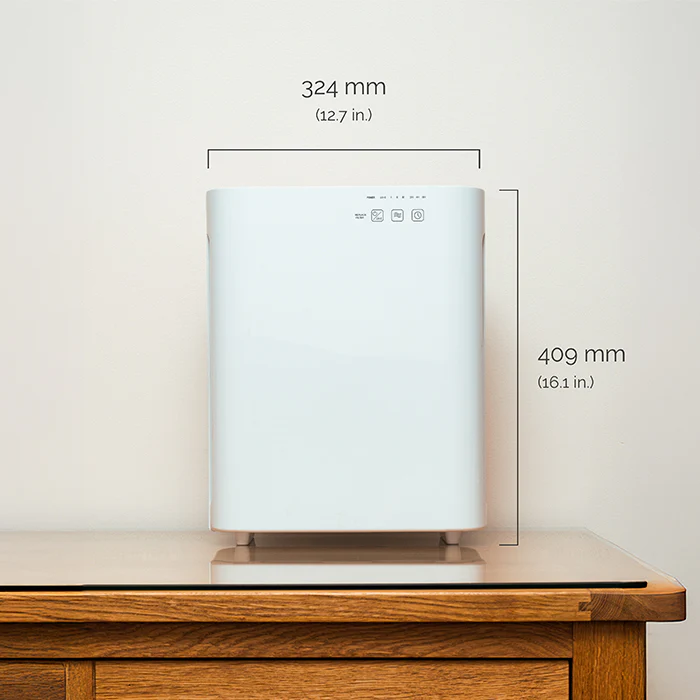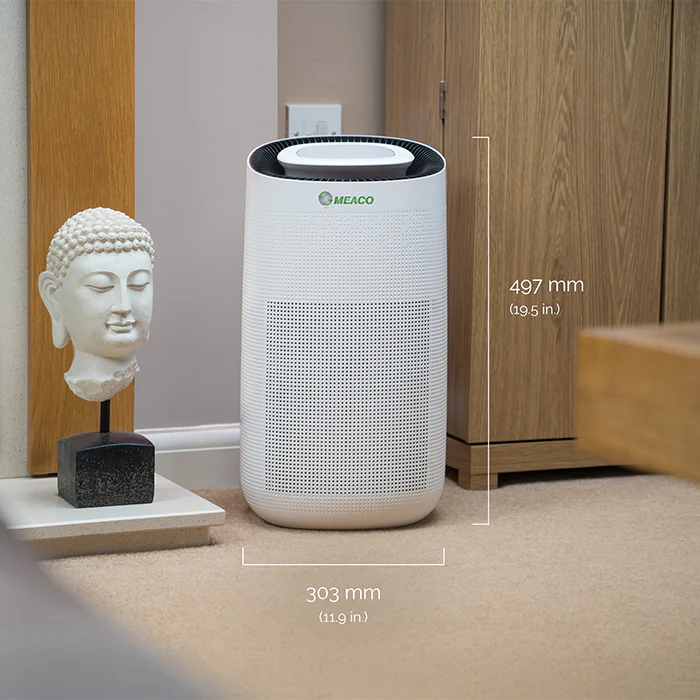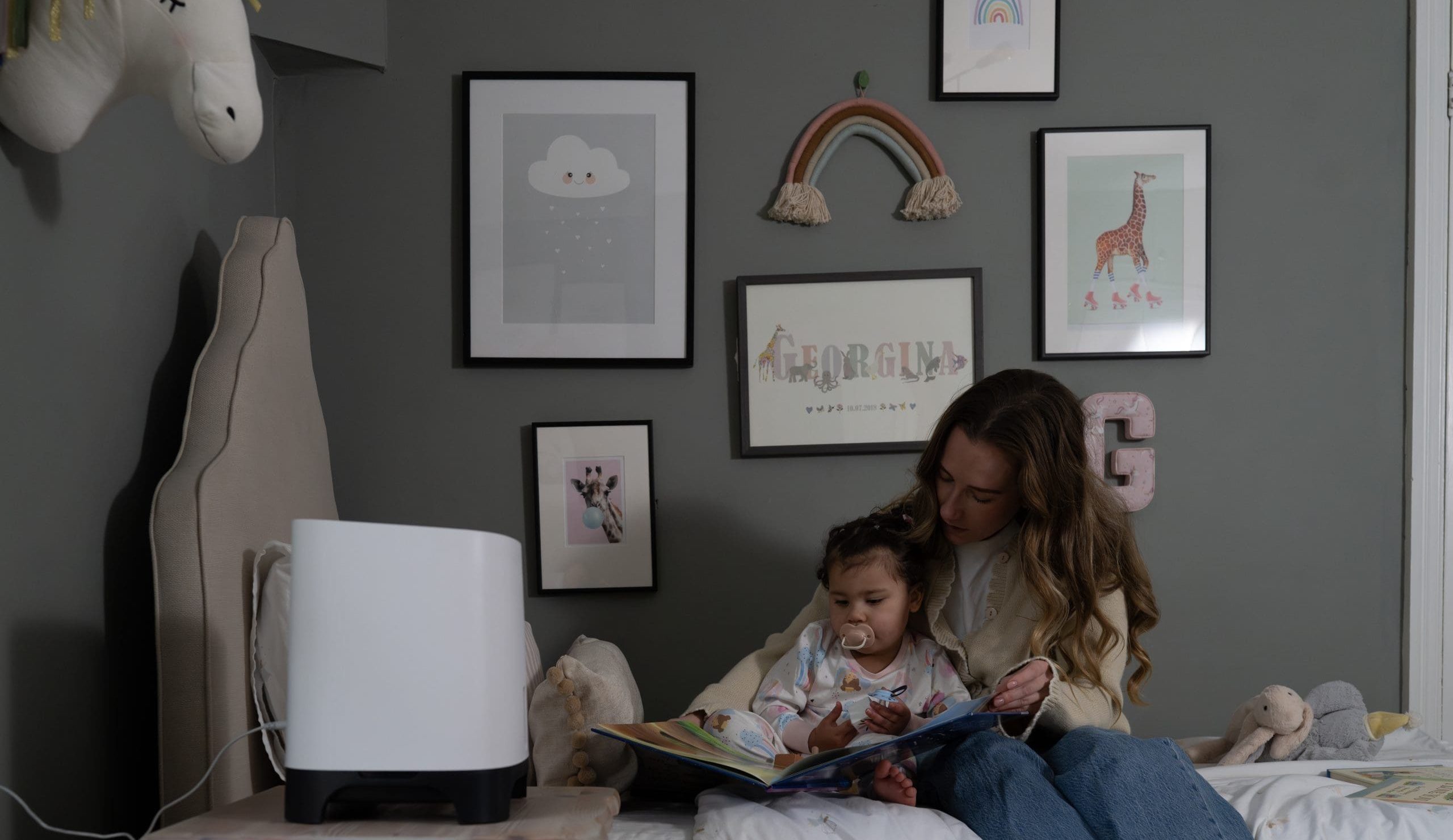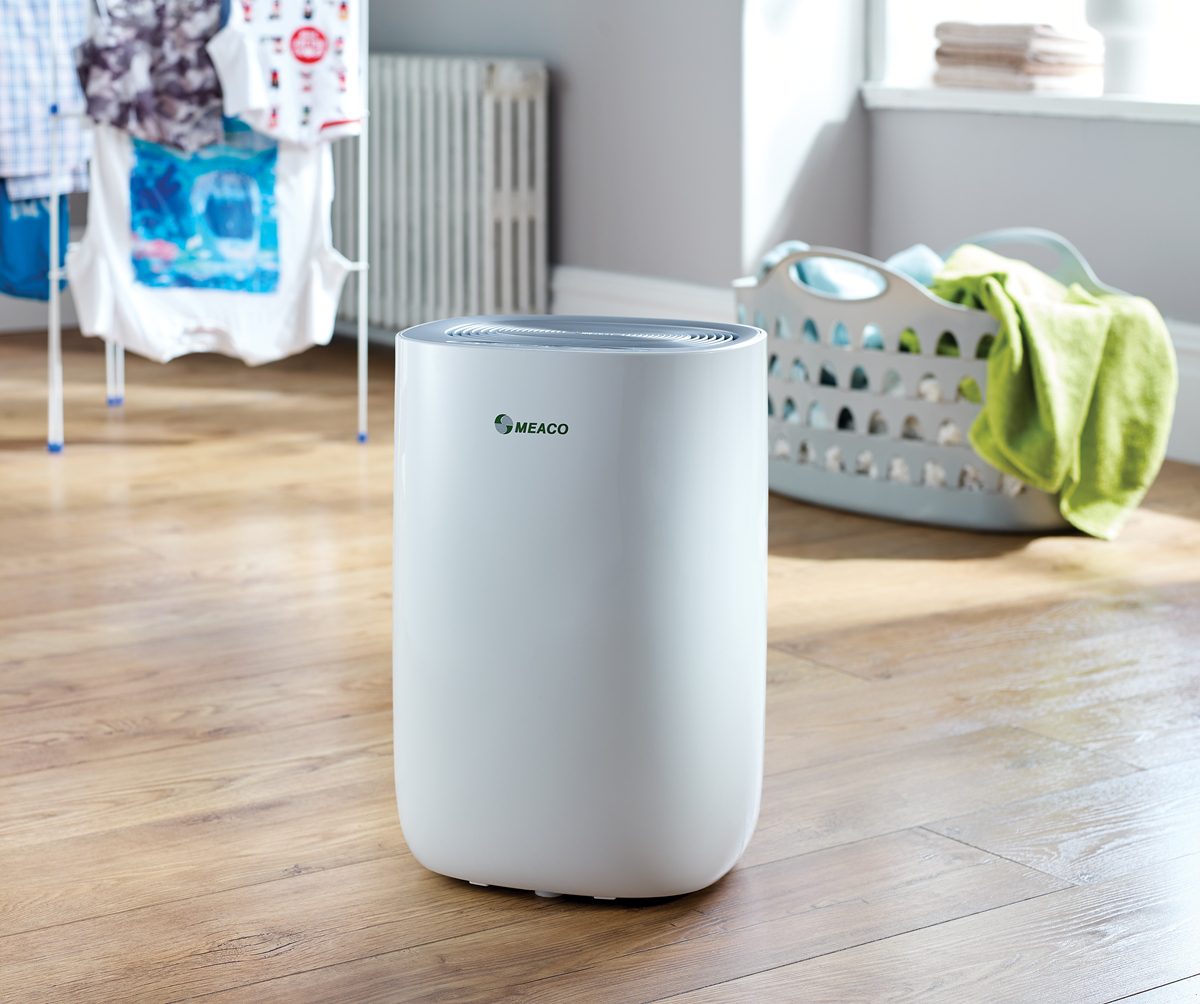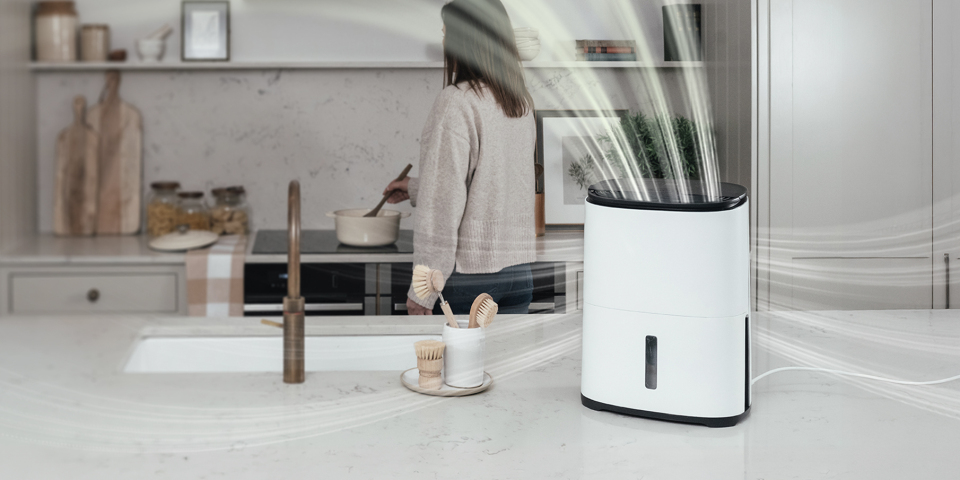
Is the air in your home as clean as you think?
We often think of air pollution as an outdoor problem, but the truth is that the air inside our homes can be just as hazardous to our health.
According to The Guardian, 97% of homes around the UK are affected by indoor air pollution. With so many hidden pollutants in our living spaces, ensuring clean air is more important than ever. Keep reading to learn how to improve the air quality in your home and protect your family’s health.
Studies conducted by UK scientists have found that air pollution has been linked to serious health issues, including heart disease; lung cancer; respiratory conditions and; stroke. A study found a 7% increase in dementia cases in areas with high levels of air pollution, particularly from nitrogen oxides and carbon monoxide.
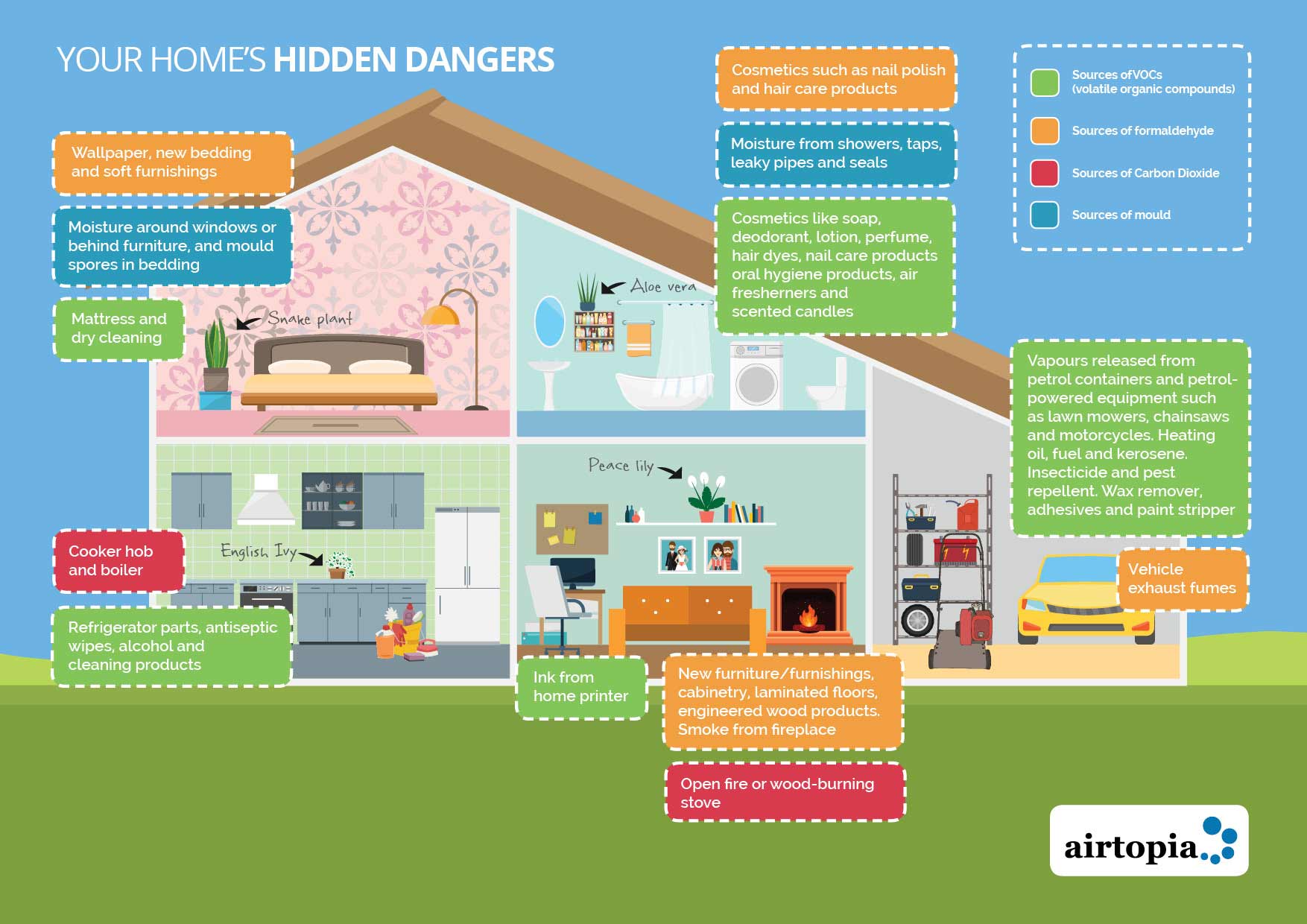
Source of air pollutants in your home – from Airtopia
Common indoor air pollutants and their health effects
Indoor air pollutants come from everyday household activities, appliances, and materials. According to the UK Parliament POST, the top pollutants inside the home are:
| Pollutant | Description | Dangers |
| Nitrogen Dioxide | Found in gas stoves, boilers, fireplaces, and vehicle emissions. | High levels can cause fatigue, headaches, dizziness and increase asthma risks. Together with Carbon Monoxide they can cause dementia. |
| Carbon Monoxide | A colourless, odourless gas from gas stoves, fireplaces, and boilers. | Low exposure can cause headaches and nausea, while high levels can be fatal. |
Particulate Matter | Tiny particles from cooking, burning candles, and smoking. | Can irritate the lungs, throat, and eyes, leading to breathing difficulties.. |
| Radon | A radioactive gas that seeps into homes from the ground through cracks and gaps. To check your home’s radon levels, visit: UK Radon. | Long-term exposure increases the risk of lung cancer. |
| Environmental Tobacco Smoke | Second-hand smoke from cigarettes, pipes, and cigars. | Contains over 7,000 chemicals, including 69 known carcinogens, increasing the risk of lung cancer and heart disease. |
| Allergens | Harmless to most people but can trigger asthma and allergy symptoms. | Can cause sneezing, itchy skin, and breathing issues. |
| Volatile Organic Compounds | Emitted from paints, cleaning products, and air fresheners. | Some VOCs are carcinogens and can cause respiratory issues and nervous system damage. |
How to reduce indoor air pollution
- Use chemical-free or allergy friendly products – they will have lower levels of VOCs and are usually fragrance-free.
- Hoover regularly – especially if you have carpets or pets, frequent vacuuming helps reduce dust and allergens.
- Control moisture levels – use a dehumidifier to prevent mould and keep your home well ventilated. A combined dehumidifier & air purifier is an even better option as they contain H13 HEPA filters which purify unwanted particles from the air.
- Use electric heating – this is the preferred option over burning wood and coal to prevent particles being emitted into the air.
- Ventilate when cooking – open windows or use an extraction fan to remove harmful fumes from the kitchen.
- Don’t allow smoke inside your home – whether it is tobacco or candles, smoke lingers in the air and on surfaces, creating long-term health risks.
- Consider an air purifier – helps remove allergens, pollutants, and odours, creating a fresher, healthier home environment.

Fighting against pollution in your home with an air purifier
There are a number of steps that can be taken to make sure that you have a cleaner source of air in your home. The MeacoClean CA-HEPA range offers a powerful solution to improve indoor quality.
The MeacoClean CA-HEPA 47×5 is a compact yet highly effective air purifier, perfect for smaller rooms. It features a three-stage filtration system – a pre-filter, HEPA filter, and activated charcoal filter – to capture dust, pollen, pet dander, and other allergens. This makes it an excellent choice for those with hay fever, asthma, or dust allergies, helping to reduce symptoms and create a cleaner, healthier living space. Additionally, the activated charcoal filter helps neutralise odours, smoke, and volatile organic compounds (VOCs), further enhancing air purity.
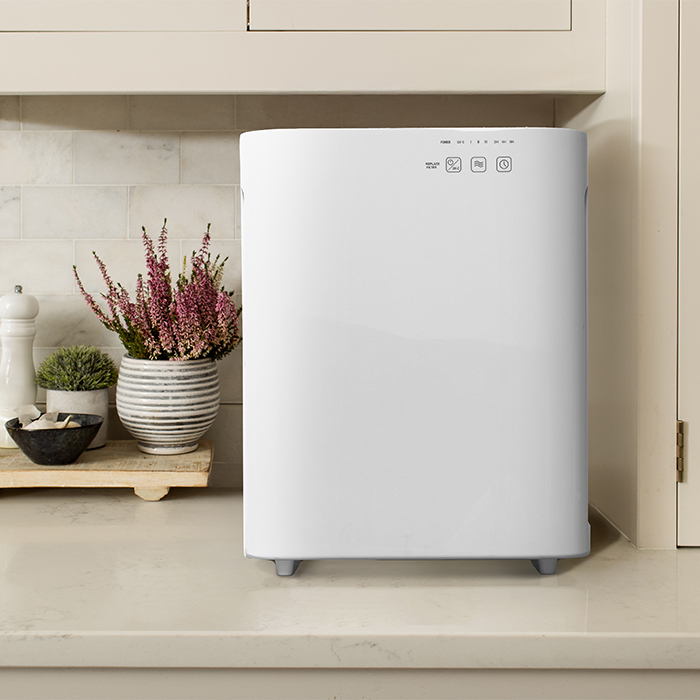
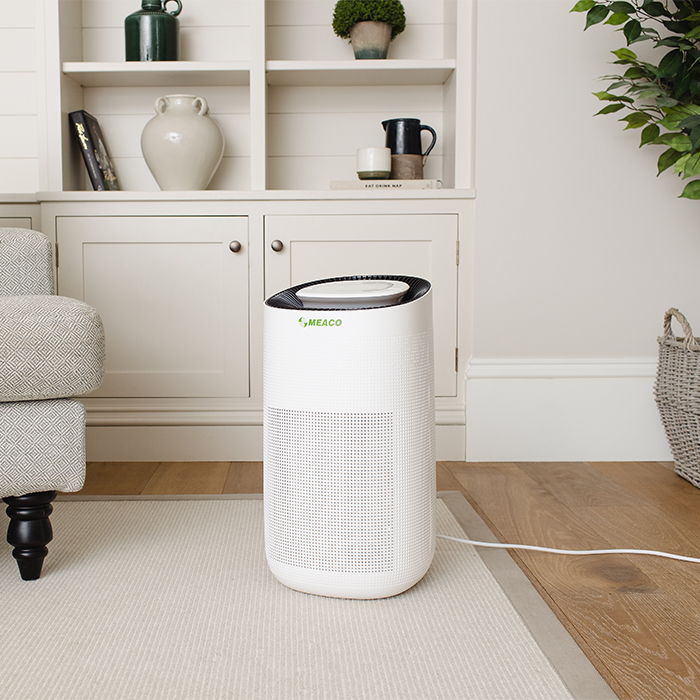
For a more advanced air purification experience, the MeacoClean CA-HEPA 76×5 takes things a step further. This is our first Wi-Fi controlled air purifier, allowing you to monitor and adjust air quality remotely from your phone. It features a laser sensor that detects airborne particles and displays real-time air quality readings, so you can see exactly how clean your air is.
Don’t just take our word for it…
“This machine saved me from air allergies. My life is more productive…highly recommend.”
⭐⭐⭐⭐⭐
Breathe cleaner, live greener
MeacoClean purifiers are designed with energy efficiency in mind, using low-power consumption to keep running costs minimal while maximising air purification. By reducing reliance on chemical sprays and air fresheners, they also contribute to a more sustainable home environment.
To check your address and pollution estimate for free, have a look at: https://weather.metoffice.gov.uk/warnings-and-advice/seasonal-advice/pollen-forecast.
Products featured:
MeacoClean 47×5 Compact Air Purifier
- Small, compact
- Great for mild allergies and smaller rooms
- Includes H11 HEPA and Charcoal Filters
- Shop now
MeacoClean 76×5 WiFi Air Purifier
- High performance and CADR rating
- App-enabled
- Medical-grade H13 HEPA filter
- Shop now

